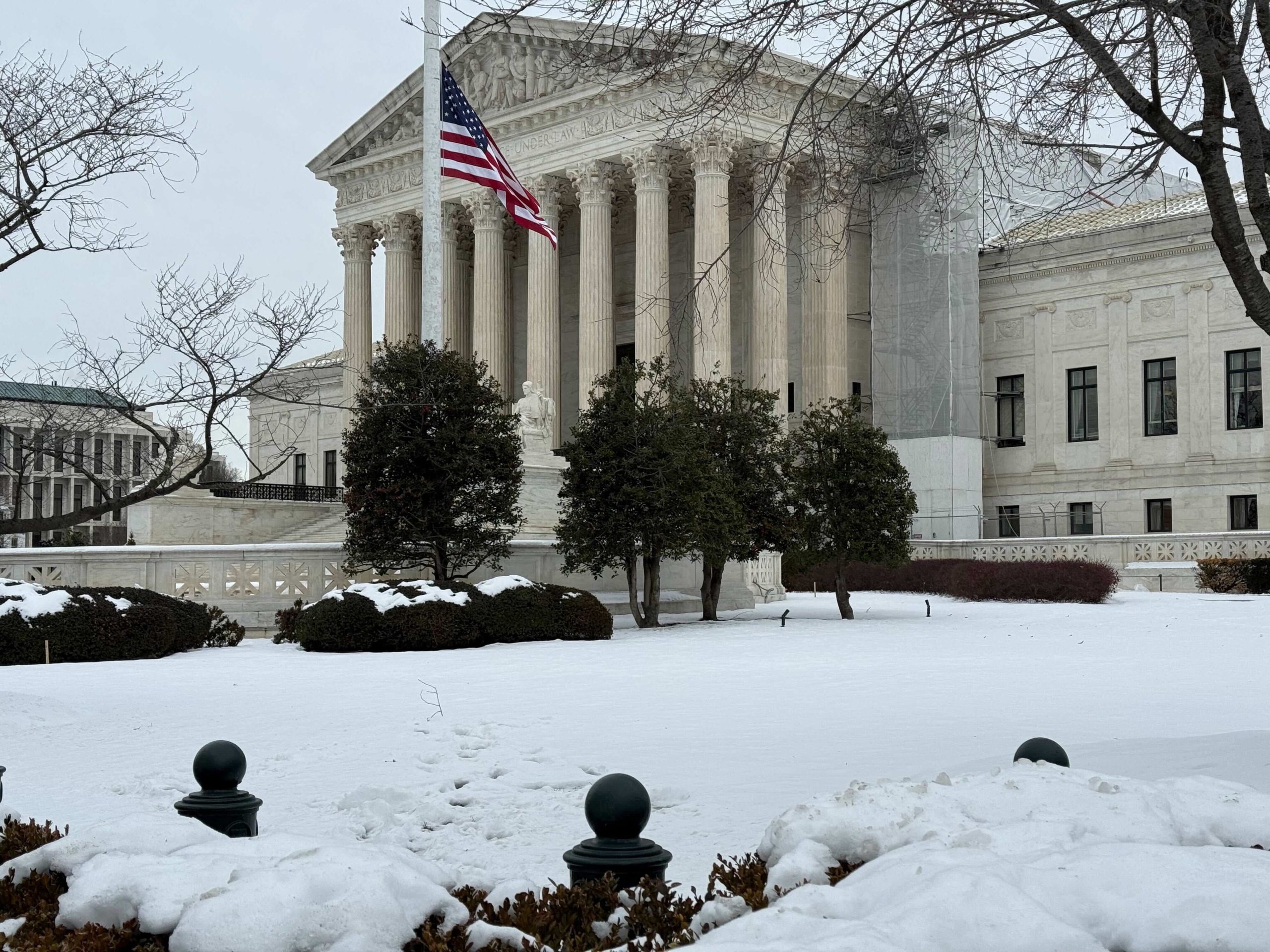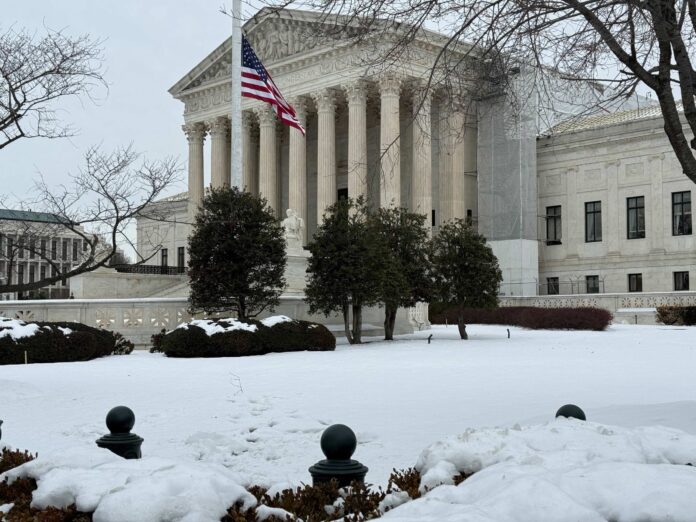OPINION ANALYSIS
on Feb 21, 2025
at 12:23 pm

The justices ruled in Hungary v. Simon and two other cases on Friday. (Katie Barlow)
A unanimous Supreme Court on Friday threw out a ruling by a federal appeals court that allowed a lawsuit brought by survivors of the Hungarian Holocaust to go forward. The survivors contended that their claims fell within an exception to the general presumption that foreign governments cannot be sued in U.S. courts because Hungary and its national railway confiscated their property, sold it, and mixed it with their other funds to do business in and with the United States. But allegations that a foreign government has commingled the funds from confiscated property are not, Justice Sonia Sotomayor explained for the court, enough on their own for a case to proceed.
More than 560,000 people were killed in the Hungarian Holocaust, which Winston Churchill reportedly characterized as “probably the greatest and most horrible crime ever committed in the history of the world.†Collaborating with Nazi Germany, the Hungarian government nationalized the property of Hungarian Jews and sent them on cattle cars to death camps; MAV, the national railway, took property from them before they boarded the trains.
A group of survivors and their heirs filed a lawsuit against Hungary and MAV in 2010. Although the Foreign Sovereign Immunities Act generally prohibits lawsuits against foreign governments in U.S. courts, they relied on an exception to that rule for cases involving property taken in violation of international law. That exception, known as the “expropriation exception,†applies when the confiscated property or any property “exchanged for it†– is either located in the United States in connection with a commercial activity or owned or operated by an agency or instrumentality†of the foreign country that engages in commercial activity in the United States.
The U.S. Court of Appeals for the District of Columbia Circuit agreed with the survivors that their case could go forward. Even if they did not contend that any of the property that Hungary and MAV confiscated during World War II is now located in the United States or owned by the railroad, the court of appeals reasoned, it was enough that Hungary and MAV commingled the funds from the sale of the property with other government funds that they used to do business with and in the United States – for example, to issue bonds and buy military equipment and to maintain an agency that sells train tickets in this country.
On Friday the Supreme Court rejected that rationale. Simply alleging that funds from the sale of confiscated property were deposited in a government account, and that funds from that account were eventually used for commercial purposes in the United States, Sotomayor reasoned, does not show – as the FSIA requires – that the funds are “present in the United States.†“To conclude otherwise requires accepting an attenuated fiction that commingling funds in an account, even if done decades earlier, means the account today still contains funds attributable to the sale of expropriated property.†This is particularly unlikely, Sotomayor suggested, when a foreign government has used commingled funds “for commercial and governmental operations all over the world, as is the case here.â€
A more expansive interpretation of the expropriation exception, Sotomayor continued, would allow more lawsuits against foreign governments in U.S. courts. And that could lead to “retaliatory or reciprocal actions†against the United States in foreign courts, she observed.
The court pushed back against the survivors’ contention that because money is fungible, a ruling for Hungary will allow foreign governments to easily circumvent the expropriation exception by selling confiscated property and then depositing it in their general treasury accounts.
Friday’s decision, Sotomayor emphasized, means only that plaintiffs like the survivors “cannot rely on a commingling theory alone†to show a commercial connection to the United States. It does not, she wrote, rule out other scenarios in which – for example – “commingling allegations may be part of broader allegations that collectively satisfy†the commercial nexus requirement.
And more broadly, the court stressed, the fact that “a particular claim cannot satisfy the expropriation exception means only that it cannot be brought here, not that it cannot be brought in any forum. As the Government correctly recognizes, ‘the moral imperative has been and continues to be to provide some measure of justice to the victims of the Holocaust, and to do so in their remaining lifetimes.’â€





